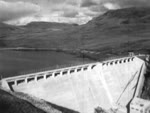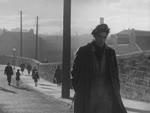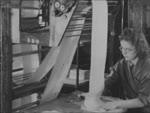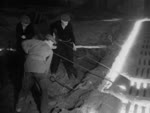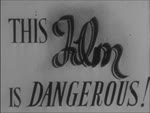MEN OF ROCHDALE
Full length video
Please read Understanding catalogue records for help interpreting this information and Using footage for more information about accessing this film.
Title: MEN OF ROCHDALE
Reference number: 0623
Date: 1944
Director: d. Compton Bennet
Sponsor: SCWS
Production company: Verity Films Limited
Sound: sound
Original format: 16mm
Colour: bw
Fiction: non-fiction
Running time: 39.00 mins
Description:
The history of the Co-operative movement in Britain. How the Co-op was first set up in Rochdale in 1844, in spite of opposition from the local business community.
For further information see "The British Co-operative Movement Film Catalogue" compiled and edited by Alan Burton 1997.
Credits:
cast Brefni O'Rourke, Julian Somers, Margaret Withers, Scott Harald, Molly Monks, John Boxer, Patrick Curwen, Beatrice Varley, Janet Burnell, Cecil Bruck, Jill Evans, Maxwell Foster, Frank Crawshaw, Brian Herbert, John Lawrie, Charles Paton, Muriel Aked, Olwen Brook, Grace Arnold
screenplay Reg Groves
ph. Reginald Wyer
m. John Greenwood
played by The London Symphony Orchestra cond. Muir Mathieson
unit p. man. William McQuitty
cam. op. Terry Parsons
sd. Charles Tasto
art d. James Carter
ass. d. Sasha Reubinoff
p. George Wynn, Sydney Box
Shotlist: Credits (.52); Shot of man taking "The History of Co-operation" by George Jacob Holyoake from bookshelf and then opening it at title page. Photograph of author born 1817 and died 1906 with caption I have cared more for co-operation than any other cause ... " (1.13); General shots nineteenth century Rochdale skyline, smoky factory chimneys and various street scenes (1.40); Shots of one of the many public meeting where methods on how to relieve poverty are discussed (6.14); Talk of drawing up constitution for co-operative movement (8.48); Charles Howarth hits on the idea in the middle of the night and wakes up his colleagues to explain. Dividends to be paid on amount each individual spends in the Co-op store and not, as previously, on how much was invested. Also, no more credit to be allowed. This scheme to be called "Rochdale Equitable Pioneer Society" (11.48); Premises eventually obtained and shop opened on 21 December 1844, at Toad Lane (12.46); Capitalist businessmen plot to make sure the co-operative scheme fails (14.40); The shop opens and people buy despite sneers and threats from businessmen (16.40); The first trading days over, they have collected 5/3 1/2d and the businessmen begin to get worried (17.45); The shop becomes more successful and membership of the co-op increases (20.55); Co-op joins with other working men and buys Cornmill, a risky business which the businessmen see as their chance to spread rumours that the Society has gone bankrupt, members begin to demand their money back, but the co-op survives the crisis and grows even more successful (30.02); Another crisis in the form of blocked supplies of raw cotton from the southern states of the USA during the Civil War which forces the mills to close and leaves thousands destitute. The shop is threatened, but manages to hold on despite the effects of lack of cotton. The working men of Rochdale pledge support for the North Americans during the war for they are also against enslavement (34.20); By 1976 the single store had sixteen branches and gradually the co-op idea spread throughout Britain. There were co-op farms and factories and even a bank. General shots inside the factories and on the farms (36.21); The principal characters are "called back from the dead" to survey the present situation of the scheme they started, but profess themselves still not satisfied - "Our work is not yet finished" (39.13)

